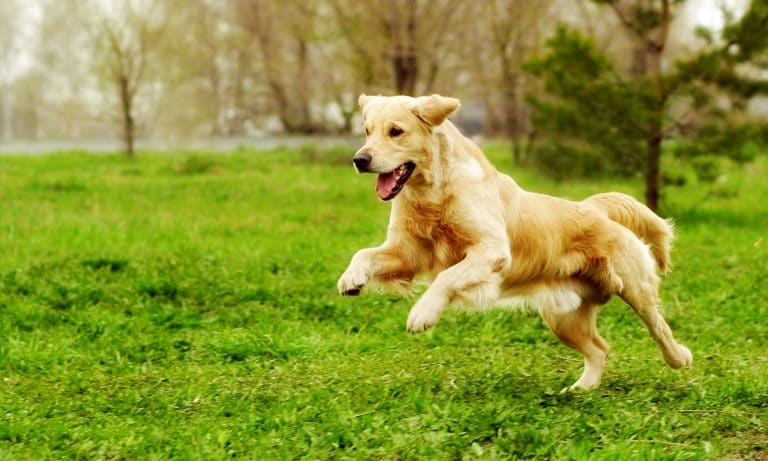Golden Retriever vs Saint Bernard

Breed Snapshot
Best For
Golden Retrievers, known for their friendly disposition, thrive on companionship and exercise. Intelligent and adaptable, these loyal dogs make ideal family pets for those who can provide lots of love and mental stimulation.
Golden Retriever Temperament
The Golden Retriever personality is naturally outgoing and eager to please. Although individual personalities can vary, most Goldens love people and social outings, thriving in homes with lively environments. Generally, Goldens are born to mingle and see everyone as a potential new best friend. Whenever they meet someone ne...
The Golden Retriever personality is naturally outgoing and eager to please. Although individual personalities can vary, most Goldens love people and social outings, thriving in homes with lively environments.
Generally, Goldens are born to mingle and see everyone as a potential new best friend. Whenever they meet someone new, they seem to say, “Hi! I am so glad we met. Do you have a ball to throw for me now that we’re friends?”
That friendly demeanor, coupled with their moderate weight and height, make Golden Retrievers excellent dogs for families with young children. However, not all Goldens are without challenges. When bringing a Golden home, cautiously introduce them to household members, especially smaller ones like children and cats, and be sure to teach small children how to behave and interact with dogs as well.
Goldens are also intelligent; they’re quick learners and easy to train. They were and are bred to be gundogs, retrieving waterfowl with their soft mouths, a characteristic that allows them to carry delicate items without applying excessive pressure. They often serve as guide dogs, therapy dogs and search-and-rescue dogs. For optimal health, Golden Retrievers need ample mental and physical exercise.
Keep in mind, though, that even the best-trained Goldens can be mischievous. So be prepared for occasional capers and learn to laugh with your dog as they “help” you unload the laundry basket.
Golden Retriever Traits

Breed Snapshot
Best For
Drooly gentle giants, Saint Bernards are best for larger homes with experienced pet parents who can provide lots of focused training and regular exercise—and keep up with their grooming needs. Known for their calm...
Drooly gentle giants, Saint Bernards are best for larger homes with experienced pet parents who can provide lots of focused training and regular exercise—and keep up with their grooming needs. Known for their calm and affectionate nature, these teddy bears are kid- and pet-friendly, to boot.
Saint Bernard Temperament
Would you ever expect your personal bodyguard to be mistaken for a floofy teddy bear? Probably not, but you should. (Because: safety first. And also because: adorable.) Saint Bernards’ gentle, calm demeanor with a dash of playfulness are a natural fit for homes with older children, other dogs and eve...
Would you ever expect your personal bodyguard to be mistaken for a floofy teddy bear? Probably not, but you should. (Because: safety first. And also because: adorable.) Saint Bernards’ gentle, calm demeanor with a dash of playfulness are a natural fit for homes with older children, other dogs and even friendly felines. They’ll also mesh with younger children, but littler kiddos will need extra supervision to ensure they can respect your pup’s boundaries.
A Saint Bernard dog doesn’t always comprehend just how big they are, which can cause some consternation and tears when playing with tipsy tots or unstable adults (or tipsy adults, for that matter). Training for both humans and the dog is a must to be sure nobody accidentally gets knocked over during backyard romps or in-home zoomies. Saints are friendly dogs (and they swear they didn’t mean to knock you down! They thought you were trying to start a game of tag!) and will stay that way with a loving home and positive reinforcement-based training. In general, Saints are not known to bite, but it’s always important to properly socialize and train any dog. Socializing your Saint Bernard puppy before 20-24 weeks of age allows your outgoing pup to learn good manners and blossom as a beloved family pet.
If it looks like you’re going to do something fun, Saints will want to join you, no questions asked. They’re in the car before you can even find your keys, ready for a nature trail adventure or a Sunday drive through the country. Whatever their human is doing, they want to mirror the activity or supervise from a cozy spot next to your feet.
If you have a job you need doing, give it to a Saint, and they will be more than happy to check it off your to-do list. Saint Bernards are a working breed who love to help people. Give them a chore, like helping feed livestock on a farm or serving as a door greeter at your small business, and they’ll be happy campers. Saints are eager to please. You’ll know the Saint Bernard is in their element when they can’t stop the drool from flowing and their tail from wagging.




